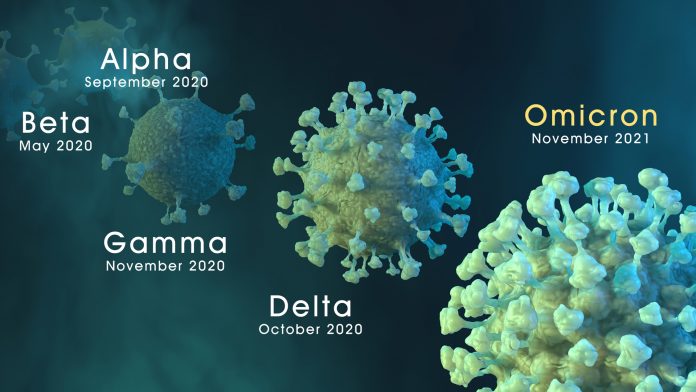
Researchers at Rutgers University have pioneered a cutting-edge PCR test that can accurately and quickly identify all variants of COVID.
The Rutgers University polymerase chain reaction (PCR) test employs molecular beacons, which is a powerful technique that locates molecules that carry genetic information to make proteins. The novel method efficiently distinguishes different variants of COVID, enabling health care professionals to administer the best form of care for their patients.
Ryan Dikdan, a doctoral student and first author of the study, said: “We were able to make a PCR test, just like the ones involved in a normal COVID-19 diagnosis, that detects not only the SARS-CoV-2 virus, but also identifies which variant is present. This is significant because we can now identify the variants of COVID as they emerge in every sample, very rapidly.”
Full details of the study can be found in The Journal of Molecular Diagnostics.
Limitations of PCR technology
PCR tests employ the commonly used polymerase chain reaction technique that allows experts to take a tiny sample of DNA and amplify it to a size suitable for analysis. Traditional PCR tests taken by patients can only detect if they have the SARS-CoV-2 virus but cannot differentiate between various variants of COVID.
This means that if public health experts want to monitor how variants mutate or if novel strains are emerging, they must visit the locations of disease outbreaks, obtain samples, and perform an incredibly complex sequencing process.
However, the team’s innovative PCR test looks to enhance this process, providing more extensive information about the disease. The researchers have expressed that they want to share the technology with other labs and testing facilities to make data about the variants of COVID more readily available, which is essential for knowing when to provide treatment to patients, such as monoclonal antibodies.
Sanjay Tyagi, the co-inventor of the technology and a professor of medicine at the Public Health Research Institute at Rutgers New Jersey Medical School, said: “Since PCR machines are now almost as common as coffee machines, strain typing can be done anywhere without missing any cases. The test will enable more accurate treatment for severe COVID since a rapid PCR test to identify the variants can now be carried out in the local hospital setting.”
Identifying COVID variants with molecular beacons
The molecular beacon technology employs microscopic, biochemical probes that are so accurate that they can determine different gene-sequence targets that vary by only a single chemical base. When these probes attach to a target, they become fluorescent, providing beacons the scientists use to diagnose a specific variant.
Whereas earlier PCR tests can only locate single mutations in the spike protein of the virus and cannot highlight the specific variant, the Rutgers test detects eight different mutations in the spike protein, such as ones that are known to increase the virus’s transmissibility and evade the body’s immune response.
Because such mutations are likely to be conserved in novel variants, the team believe that their PCR test will be essential for detecting emerging variants that evolve from a new combination of mutations.
























